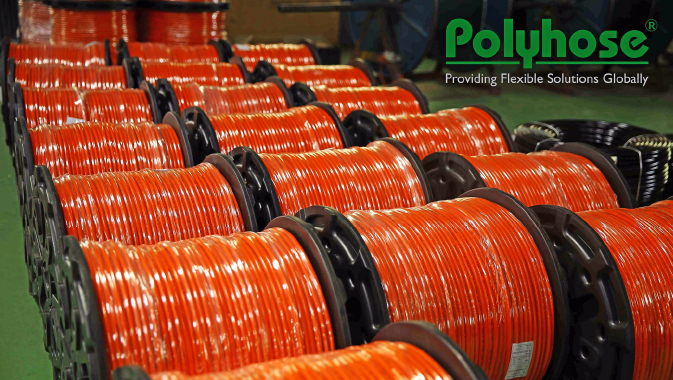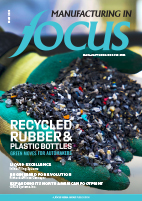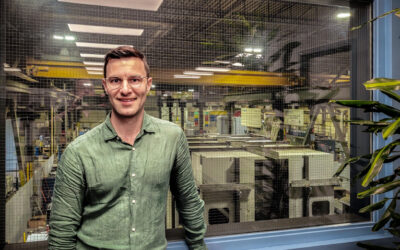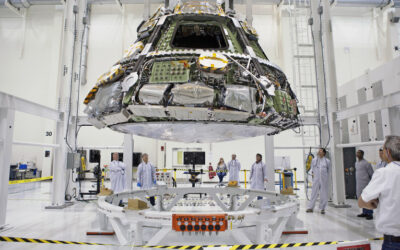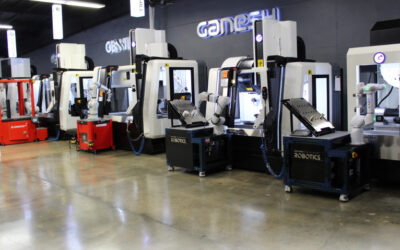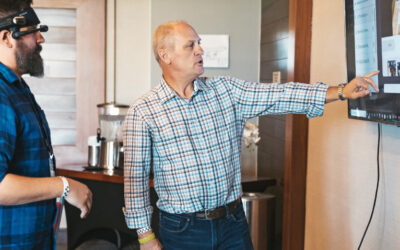Focusing on the manufacturing, development, design, and distribution of fluid conveyance products, Polyhose, Inc.’s history of success as a leader in the field continues with its latest achievement: the opening of its newest location in North Carolina. As the company continues to forge ahead with state-of-art facilities and innovative product offerings, its dedication to providing quality service and goods, while placing both customers and employees at the forefront, remains impressive on both a local and worldwide scale.
Now a global diversified industrial conglomerate, Polyhose — founded in 1996 — started small, but within 20 years made its mark across the world, spanning North America, Europe, the Middle East and South East Asia, and now proudly employs more than 1,800 around the globe with an eye on environmental and corporate social responsibility, quality products and exemplary customer service.
“Compared to other hose companies that are in the market today, we are a very young company,” says Vice President Mohammed Millwala. “We’ve been in the industry for 25 years, but our growth has been very rapid. We have to give that to the associations and joint ventures that have been a part of it, and catapulted us very quickly, making us a large global hose manufacturer.”
Polyhose Inc. started off by manufacturing thermoplastic hose, and in 2005 moved into the rubber hydraulic hose field, a joint venture with a large construction equipment manufacturer association that helped Polyhose establish the kind of quality practices required, while achieving solid manufacturing processes.
In 2009, in order to properly participate in the paint industry, Polyhose also acquired Exitflex SA, along with all its subsidiaries, moving its product into locations globally including Poland, Sweden, Germany, Switzerland, the United States and Singapore.
“That’s how we entered the paint sprayer industry. What we’ve been doing since the acquisition is having all our locations carry our complete product line,” says Millwala. “We have a very wide product range, and we believe that’s one of our big strengths.”
Along with manufacturing both rubber hydraulic and thermoplastic hose, Polyhose also works with PTFE tube, metal hose, and makes its own fittings.
“We’re very diverse compared to other hose manufacturers, who typically focus on one line,” says Millwala. “We do it all, and we’re constantly expanding even further to bring on board more product lines. We’re also very quick in doing that. Our owners make a decision and the plant goes into operation within a year. We’re quick in being able to add capacity and equipment, getting ahead of the learning curve in manufacturing.”
Polyhose and its high-tech facilities have been accredited with ISO 9001-2008, TS16949 & AS9100D as well EMS Certified operations, all managed by highly skilled personnel who ensure the company continues to create superior product for worldwide delivery.
Although the company has been present in the United States for years distributing its hose products, the company has never sold or grown the Polyhose brand in the States directly. Its new location in North Carolina is changing that, growing Polyhose as a brand and firmly establishing its name in the North American market.
“If you’re a big player in the market, we believe that automatically drives the growth of our brand and other regions of the world,” says Millwala.
The new facility has two planned phases. Phase 1 features a 40,000-square-foot warehouse and assembly location slated for completion in the fourth quarter of 2020, while Phase 2, happening three to four years from now, will be a light manufacturing plant for thermoplastic or PTFE hose. In addition to the North Carolina facility, the company is also opening up a satellite location in South Carolina, specific to the region and supporting distributors and small OEMs.
“With Polyhose investing freely in new technology and new processes, they really have state-of-the-art equipment along with their excellent manufacturing controls, and they can make world-class products and world-class innovations,” says Senior Vice President Jon Pressler. “From an innovation standpoint, that’s the biggest thing they do. They’re able to do things and control it. That’s difficult for other companies because they don’t have the latest and greatest like Polyhose who has the best technologies in hose building.”
Almost 98 percent of Polyhose’s income is reinvested every year in the company in new product line, says Millwala. In 2017, the company formed a joint venture with a Japanese-based company to make metal hose, which was the missing piece in the Polyhose offering.
“We make the decisions to do things like that quickly and figure out how to make high-quality products,” he says.
This fact ties into the company’s close relationship with its valued customers.
“We don’t like to say ‘no’ to or turn down our existing customers,” says President Fatema Mohammed. “We use this as an opportunity to broaden our product range and I think our customers have been instrumental to our success, because if not for their requests it wouldn’t have allowed us to push the envelope and try new things.”
“All of our innovations and updates are driven by the customer,” adds Millwala. “We look at it as an opportunity, and that means fun challenging projects for us. It helps us keep moving ourselves to the next level.”
In other exciting news for Polyhose, the company was recently awarded a contract for shipping its PTFE product line to Boeing in 2020. The process to become qualified for aerospace standard and putting together an assembly sell dedicated to aerospace requirements took between two-and-a-half to three years to complete and was very stringent, says Millwala.
“It was a huge challenge and we’re very proud of the whole company to be able to get qualified,” he says.
Looking forward, the company believes the new facility in North Carolina will be the beachhead that drives future growth.
“Once we have a bigger facility and can have more products in North Carolina, our service will also be better,” says Pressler. “Our products are excellent, so we expect growth to come from that. And as Mo said, it doesn’t take long for Polyhose to make a decision. If the demand is there and the acceptance is there – which we know it will be – Polyhose will react in a positive way.”
At the moment, most of the manufacturing is done in India which creates some obstacles for the company, as customers aren’t able to see where and how the work is done.
“If customers get to see our facilities and manufacturing processes, then they believe in us and they have faith in us,” says Pressler. “The obstacle is that it’s not always easy to get customers to go all the way to India to see for themselves but once they do, that’s our best sales tool.”
In other words, setting up a product facility as part of the company’s Phase 2 expansion in a more accessible location would help build the confidence of customers. When they’re able to see the same process used in plants in India here in the States, more customers can be brought on board.
“And what separates us from our competitors, I believe, is our broad product range,” says Millwala. “There’s maybe one or two companies that carry the same lines or manufacture the same range we do, but since we manufacture it all, we have a big competitive advantage over our competitors that may carry it but buy it elsewhere.”
Polyhose also believes in environmental accountability, proudly installing a 22kw solar power plant in 2015 that generates 25 thousand KWH of energy per year, and a 12 KLD sewage treatment plant that helps treat an average of 4,200 liters of water per day. The company also embraces diversity by working to train and develop skills for differently-abled personnel, creating success stories and building confidence, particularly for deaf employees.
“It personally means a lot to me, hiring a lot of employees who are deaf,” says Mohammed. “It’s a conscious effort to provide employment to the disabled. The mentality of it doesn’t matter: if you work hard and do what you can do, we’re there to support you.”
Not a company to rest on its laurels, Polyhose has every reason to be proud of its many accomplishments, including getting NADCAP certified last year, and also starting up a medical tubing division.
“In addition to industrial hose products, we’re now venturing into the medical industry where we’re extruding and making tubes used for IV injections in North America,” says Millwala. “We’re definitely planning for future growth in aerospace as well as medical devices and that entire industry.”
As the company moves into 2020, embracing facility growth and new technologies, it also works to keep its clients top of mind with every decision made.
“Customer relationship is a priority for sure,” says Pressler. “The hose business is a service business. The quality has to be there. It’s a given. Coming to North Carolina and expanding will allow us to provide better service, and we understand that having a great quality product is just the start. After that you have to have the service customers want when they want it. That’s why the expansion to North Carolina is such a key to growth strategy and important to our current and future customers.”

